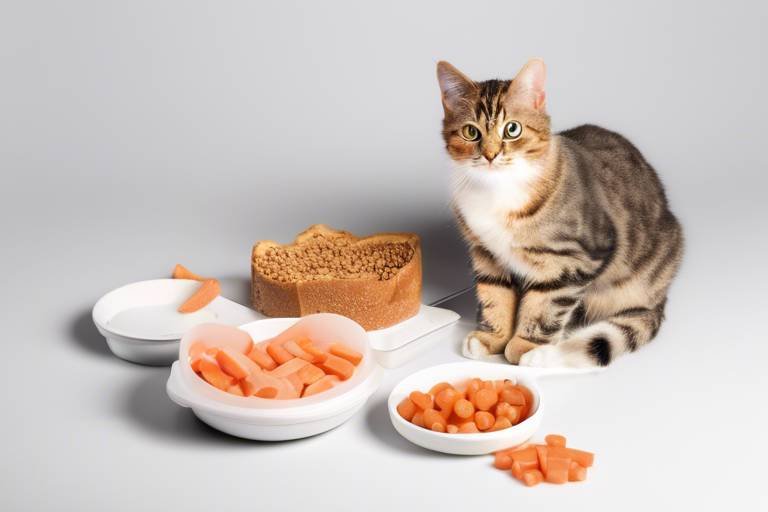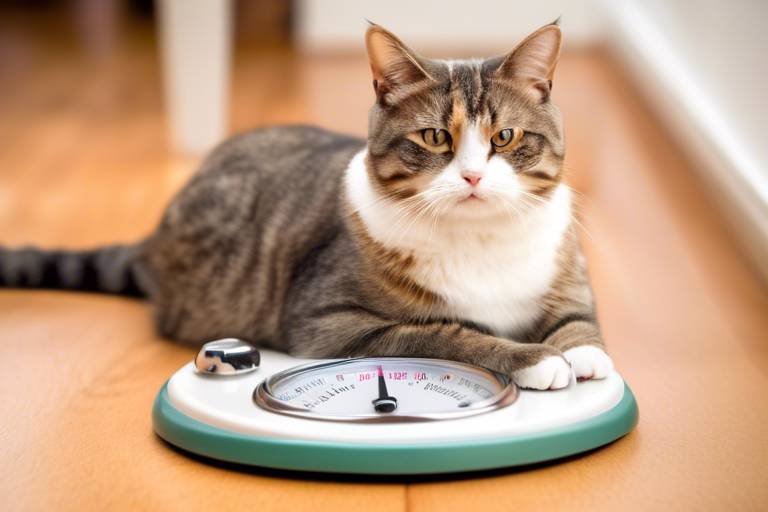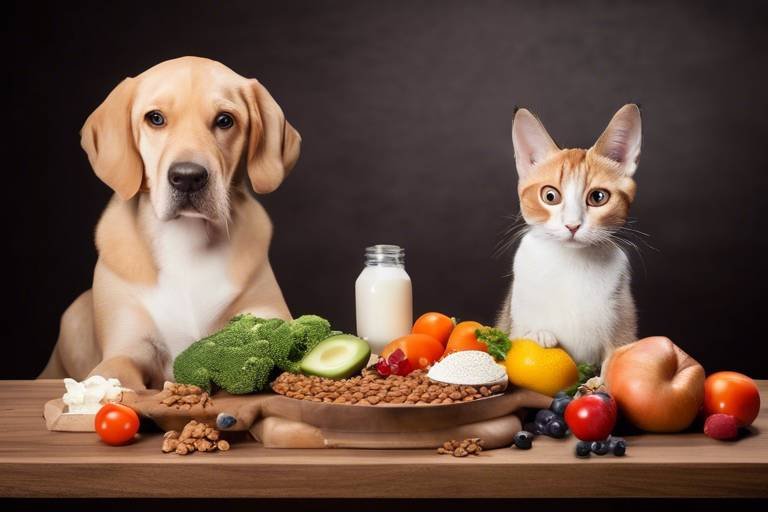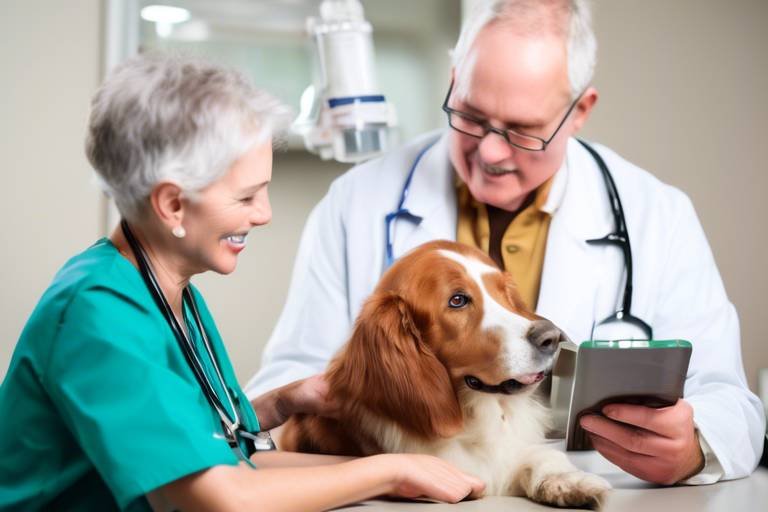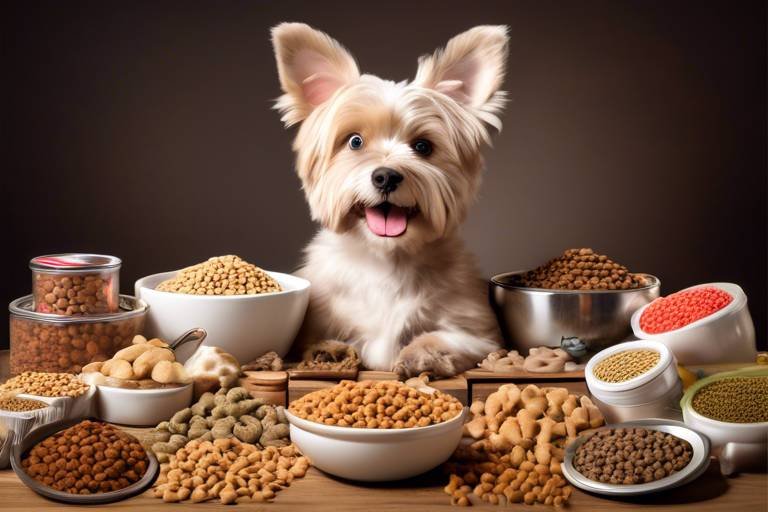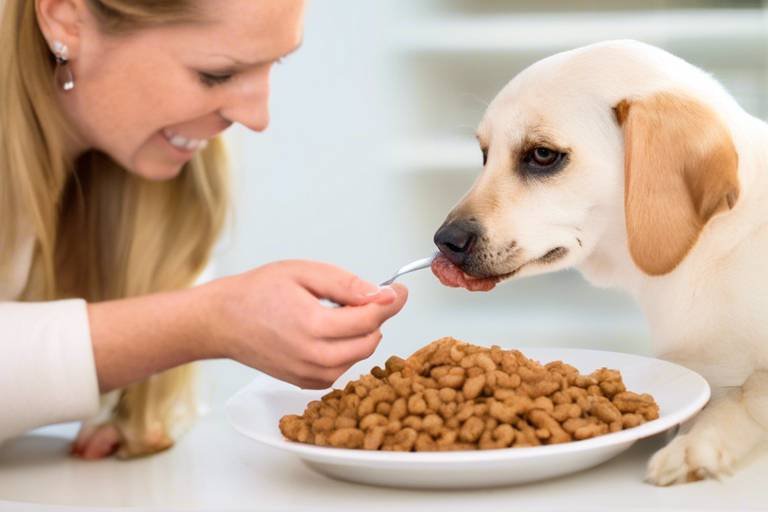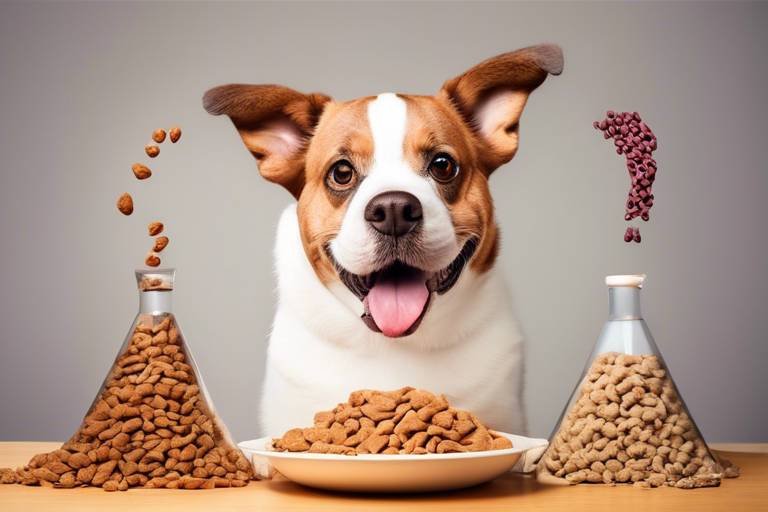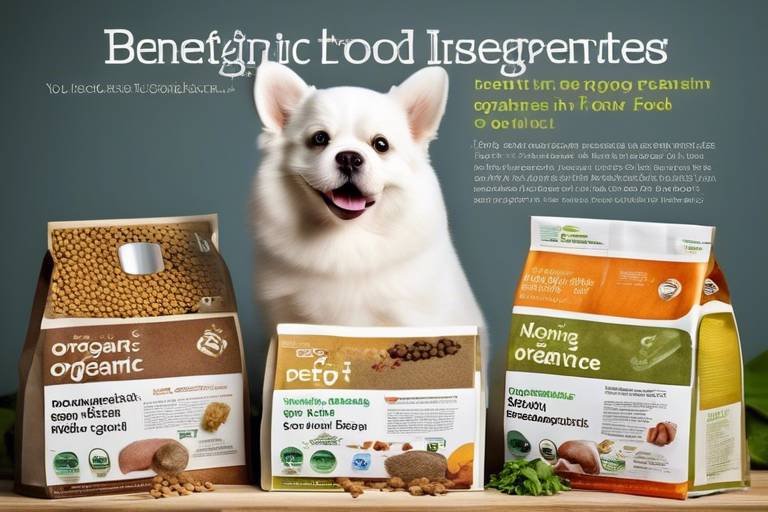The Importance of Nutrition for Working Cats
When we think of working cats, we often picture them prowling around barns, keeping rodents at bay, or even assisting in farms. But what many people overlook is that these feline heroes have unique nutritional needs that play a critical role in their performance and overall health. Just like an athlete requires a balanced diet to excel in their sport, working cats need the right fuel to stay energized and focused on their tasks. The right nutrition can mean the difference between a cat that thrives in its role and one that struggles to keep up.
So, why is nutrition so vital for these industrious felines? Well, working cats engage in activities that require a lot of energy, stamina, and agility. Imagine running a marathon without the right hydration or energy bars; it would be tough, right? Similarly, if a working cat's diet lacks essential nutrients, it can lead to fatigue, poor performance, and even health issues. This article will explore the critical role that nutrition plays in the lives of working cats, detailing their unique dietary needs and how proper nutrition can enhance their work efficiency and overall well-being.
In the following sections, we will dive deeper into the specific nutritional requirements of working cats, highlighting key nutrients such as proteins, fats, vitamins, and minerals. We will also discuss how to ensure that these cats stay hydrated and how to choose the right commercial or homemade diets. By the end of this article, you will have a comprehensive understanding of how to keep your working cat in peak condition through proper nutrition.
Working cats have specific nutritional requirements that differ significantly from those of non-working pets. These cats are often more active, which means they require a diet that can support their high energy levels and help them recover from their daily tasks. Just like a high-performance vehicle needs premium fuel, working cats need a specialized diet to keep them running smoothly.
To maintain their energy levels and support their active lifestyles, working cats need a diet rich in the following essential nutrients:
- High-quality proteins for muscle maintenance and repair
- Healthy fats for sustained energy
- Vitamins and minerals for overall health and immune support
Understanding these needs is the first step in ensuring that your working cat performs at its best. By tailoring their diet to meet these specific requirements, you can help them thrive in their roles and lead a healthier, happier life.
Now that we understand the importance of nutrition for working cats, let’s take a closer look at the key nutrients that are vital for their optimal performance. Each nutrient plays a unique role in supporting their energy levels, muscle function, and overall health.
Protein is crucial for muscle maintenance and energy. It serves as the building block for muscles, tissues, and enzymes. Without adequate protein, a working cat may experience muscle loss, weakness, and fatigue. So, what types of proteins are beneficial for working cats? Animal-based proteins, such as chicken, turkey, and fish, are excellent sources. They provide all the essential amino acids that cats need to thrive.
Identifying high-quality protein sources is essential for a working cat’s diet. Here are some top contenders:
| Protein Source | Benefits |
|---|---|
| Chicken | Rich in essential amino acids and easily digestible. |
| Turkey | Low in fat and high in protein, great for muscle maintenance. |
| Fish | Contains omega-3 fatty acids, which are excellent for skin and coat health. |
Different working cats may require varying protein levels based on their activity. For instance, a barn cat that spends all day hunting mice will need more protein than a cat that occasionally patrols the yard. It’s essential to adjust their protein intake according to their workload and physical condition. Regularly monitoring their weight and energy levels can help you determine if they’re getting the right amount of protein.
Fats are a concentrated energy source for working cats, providing more than double the energy per gram compared to proteins and carbohydrates. This makes them essential for sustaining energy during long working hours. However, not all fats are created equal. Healthy fats, such as omega-3 and omega-6 fatty acids, are vital for maintaining a cat's energy levels and overall health.
Proper hydration is often overlooked in feline nutrition. Just like a car needs coolant to prevent overheating, working cats need water to maintain their health and performance. Dehydration can lead to serious health issues, including kidney problems and urinary tract infections. Ensuring your working cat has constant access to fresh water is crucial for their overall well-being.
Recognizing dehydration is crucial for maintaining a working cat's health. Some common signs to watch for include:
- Dry mouth and gums
- Loss of skin elasticity
- Reduced energy levels
- Decreased appetite
By keeping an eye out for these signs and ensuring your cat stays hydrated, you can help them perform their best.
Selecting a suitable commercial diet can be challenging, given the plethora of options available. When reading labels, look for high-quality ingredients, with real meat as the primary ingredient. Avoid foods with fillers or artificial additives, as these can detract from your cat's health and energy levels.
Some owners prefer to prepare homemade diets for their cats. While this can be beneficial, it's essential to ensure that the diet meets all necessary nutritional requirements. Consulting with a veterinarian or a pet nutritionist can help you create a balanced homemade diet that supports your working cat's unique needs.
Q: How much protein should my working cat eat?
A: The protein requirement varies based on activity level, but a general guideline is to aim for at least 30-50% of their diet to be protein.
Q: Can I feed my working cat a grain-free diet?
A: Yes, many cats thrive on grain-free diets, but ensure they still receive all essential nutrients, particularly protein and fats.
Q: How can I tell if my cat is hydrated?
A: Check for signs of dehydration like dry gums, skin elasticity, and energy levels. Regularly providing fresh water is essential.
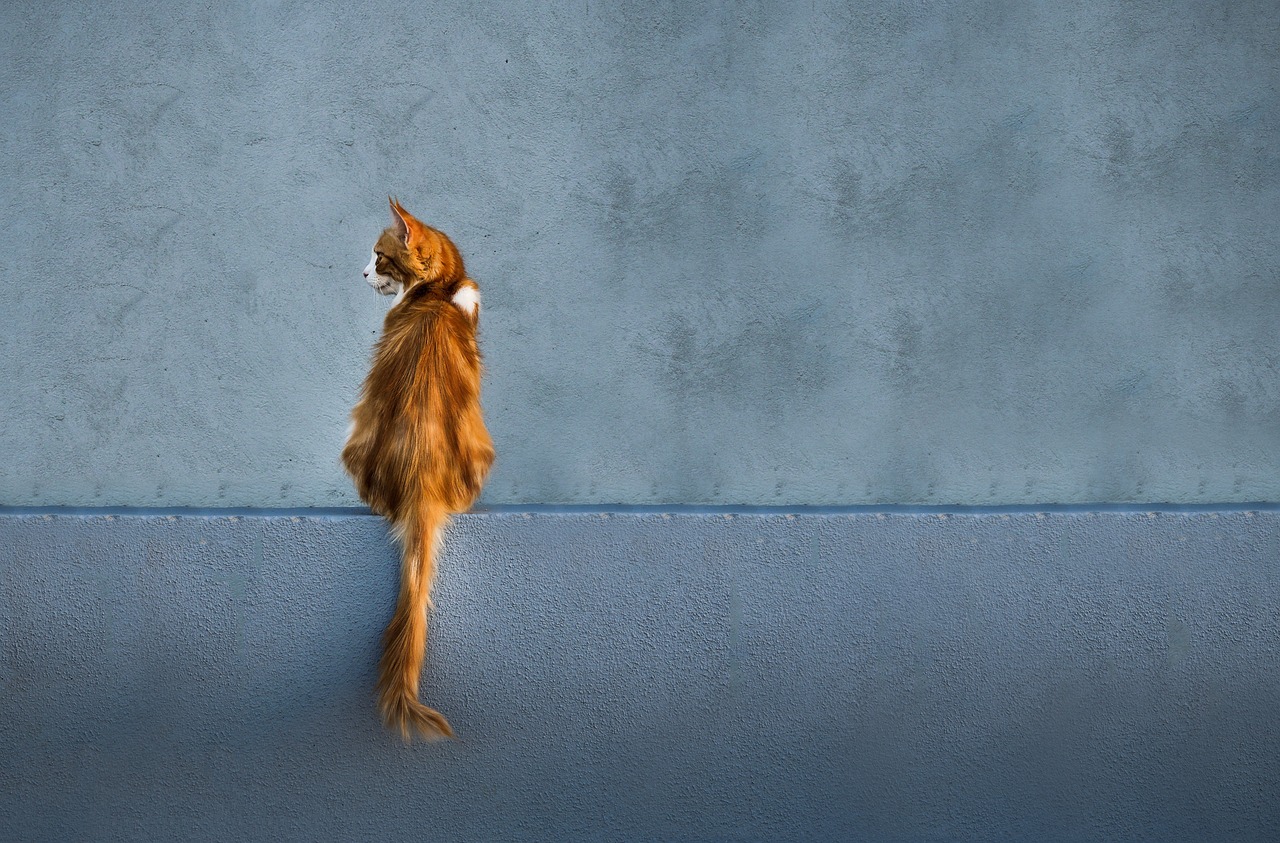
Understanding the Nutritional Needs of Working Cats
When it comes to our feline friends, nutrition is not just an afterthought—it's a critical component of their overall health, especially for those that lead active lives as working cats. Unlike their more sedentary counterparts, working cats require a diet that fuels their energy, supports their physical demands, and keeps them in peak condition. These cats are often engaged in tasks such as pest control, farm work, or even companionship in busy environments, which means their bodies are constantly on the move. So, what does this mean for their nutritional needs?
First and foremost, working cats need a diet rich in high-quality proteins to maintain muscle mass and energy levels. Proteins serve as the building blocks of a cat's body, playing a vital role in repairing tissues and supporting overall growth. But it’s not just about quantity; the quality of protein matters immensely. For instance, animal-based proteins are generally more beneficial than plant-based ones because they contain essential amino acids that cats cannot synthesize on their own.
Another key aspect of their diet is fats. While fats may have a bad reputation in human diets, for working cats, they are a concentrated source of energy. This is particularly important for those engaged in physically demanding tasks. Fats provide more than twice the energy per gram compared to proteins or carbohydrates, making them essential for sustaining prolonged activity. However, not all fats are created equal. It's crucial to focus on healthy fats, such as omega-3 and omega-6 fatty acids, which support brain function and skin health.
Moreover, vitamins and minerals play a significant role in a working cat's diet. These micronutrients are necessary for various bodily functions, including immune response, bone health, and metabolic processes. For example, vitamin E acts as an antioxidant, while calcium and phosphorus are vital for strong bones. The right balance of these nutrients ensures that working cats remain agile and healthy, ready to tackle their daily tasks.
Hydration is another often-overlooked aspect of feline nutrition. Working cats need to have access to fresh, clean water at all times. Dehydration can lead to serious health issues, including kidney problems and urinary tract infections, which can hinder their performance. It's essential to monitor their water intake, especially during hot weather or after intense physical activity.
In summary, understanding the nutritional needs of working cats involves recognizing that they require a balanced diet rich in high-quality proteins, healthy fats, vitamins, and minerals, along with proper hydration. By meeting these dietary requirements, owners can ensure that their working cats remain healthy, energetic, and capable of performing their important roles effectively.
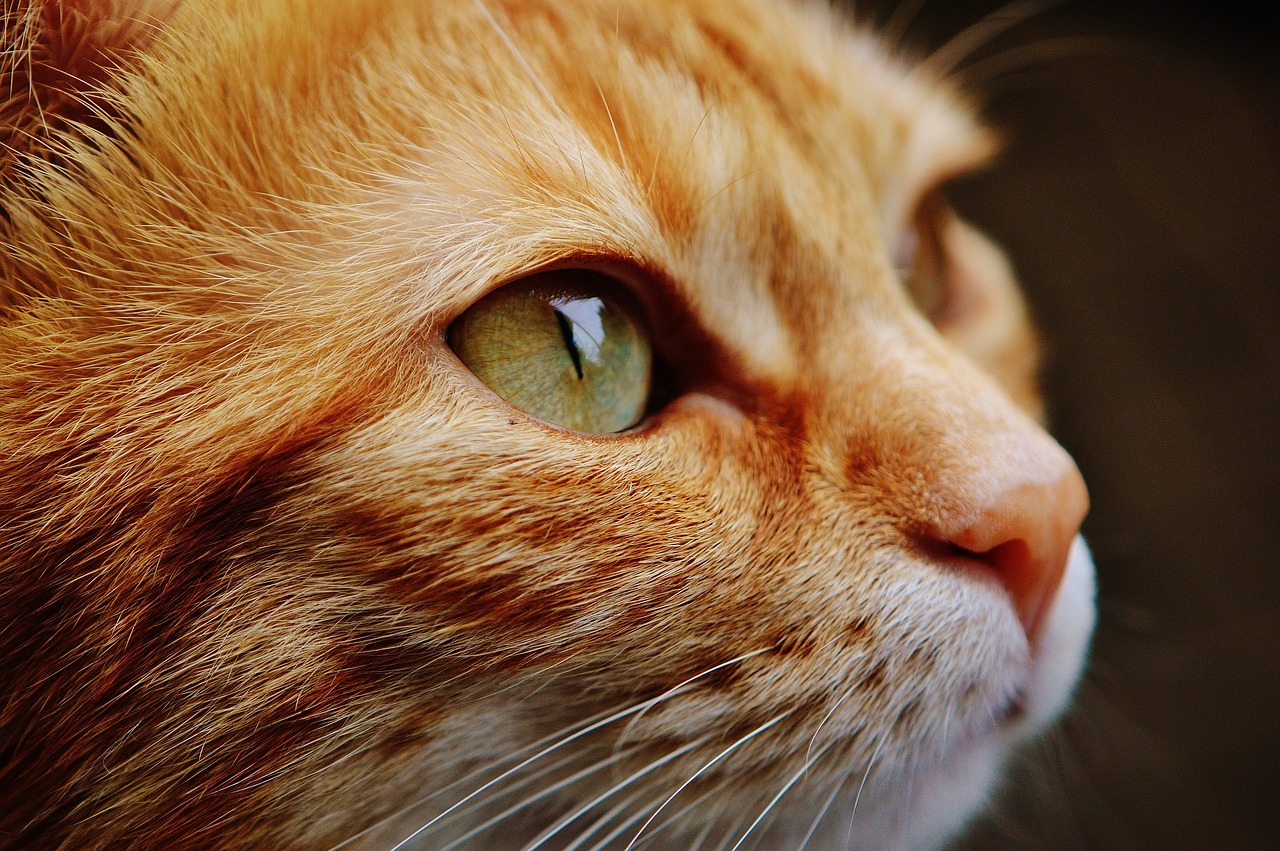
Key Nutrients for Optimal Performance
When it comes to the health and vitality of working cats, understanding their unique nutritional needs is paramount. Just like athletes require specific diets to perform at their best, working cats need a tailored blend of nutrients to fuel their busy lives. These furry little dynamos are not just regular pets; they are often engaged in activities that demand high energy levels and robust physical health. So, what exactly are the key nutrients that play a critical role in enhancing their performance? Let’s dive into the essentials!
First and foremost, proteins are the building blocks of a working cat's diet. They are essential for muscle maintenance and energy production, particularly during strenuous activities. Cats, being obligate carnivores, thrive on animal-based proteins, which provide the necessary amino acids that support their active lifestyle. Incorporating a variety of protein sources can not only keep their meals interesting but also ensure they receive a complete range of nutrients. For instance, chicken, fish, and beef are excellent options that can be included in their daily diet.
Next up, we have fats, which are often overlooked but are incredibly important for energy. Fats provide a concentrated source of energy that is vital for working cats, especially those engaged in prolonged activities. They help sustain energy levels during long hours of work, making them an essential component of their diet. Healthy fats, like those found in fish oil and chicken fat, also contribute to a shiny coat and healthy skin, which is just an added bonus!
In addition to proteins and fats, vitamins and minerals play a crucial role in supporting the overall health of working cats. Vitamins, such as A, D, and E, help with vision, bone health, and immune function, while minerals like calcium and phosphorus are essential for strong bones and teeth. A well-rounded diet that includes a variety of fruits and vegetables can help ensure that these vitamins and minerals are adequately supplied. For example, adding a bit of pumpkin or spinach can provide a nutritional boost without compromising their meat-centric diet.
To summarize, the key nutrients for optimal performance in working cats include:
- Proteins: Essential for muscle maintenance and energy.
- Fats: A concentrated source of energy that supports endurance.
- Vitamins: Important for various bodily functions including immune health.
- Minerals: Crucial for bone strength and overall health.
By ensuring that these nutrients are included in their diet, cat owners can significantly enhance the performance and overall well-being of their working cats. Remember, a well-fed cat is a happy and productive cat, ready to tackle any task at hand!
The Role of Protein in a Working Cat's Diet
When it comes to the diet of working cats, protein plays a pivotal role that cannot be overstated. Just like how a car needs fuel to run efficiently, working cats require a rich source of protein to maintain their energy levels and support their active lifestyles. These feline athletes are constantly on the move, whether they are chasing mice, patrolling their territory, or assisting in pest control. Therefore, ensuring they receive adequate protein is essential for their overall health and performance.
So, what exactly makes protein so vital for these furry workers? First and foremost, protein is crucial for muscle maintenance. Working cats rely on strong muscles to perform their tasks effectively. Without sufficient protein, these muscles can weaken, leading to fatigue and decreased work efficiency. Additionally, protein is a source of energy, especially when carbohydrates are scarce. It's like having a backup generator—you want to ensure that your working cat has enough power to keep going, even when the primary source runs low.
There are various types of proteins that can benefit working cats, including animal-based proteins such as chicken, turkey, fish, and beef. These proteins contain essential amino acids that cats cannot synthesize on their own, making them vital for their diet. Incorporating these high-quality protein sources into a working cat's meals can significantly enhance their performance. For instance, a diet rich in chicken not only provides the necessary protein but also offers other nutrients that support overall health.
Identifying high-quality protein sources is essential for a working cat's diet. Here are some excellent options to consider:
- Chicken: A lean source of protein that is easily digestible.
- Fish: Rich in omega-3 fatty acids, which promote healthy skin and coat.
- Beef: Provides a hearty dose of protein and iron.
- Turkey: Another lean protein that is great for muscle maintenance.
It's important to note that not all protein sources are created equal. Always opt for high-quality, animal-based proteins rather than fillers or by-products that may offer minimal nutritional value.
Just like athletes have different training regimens, working cats also have varying protein needs based on their activity levels. For instance, a cat that spends all day hunting will require more protein than one that enjoys a leisurely lifestyle. On average, working cats should consume between 30% to 50% of their diet in protein, but this can vary. It's essential to adjust their protein intake according to their workload and physical condition. Monitoring their energy levels and overall health can help you determine if they need more or less protein in their diet.
In conclusion, protein is a cornerstone of nutrition for working cats. It fuels their muscles, provides energy, and supports their overall health. By ensuring that your working cat receives high-quality protein from reputable sources, you can help them perform at their best and maintain their vitality. After all, a well-fed working cat is not just a happy cat; it’s a productive one!
Sources of High-Quality Protein
When it comes to feeding working cats, high-quality protein is non-negotiable. These furry little dynamos need protein that not only fuels their energy levels but also supports their muscle maintenance and repair. Think of protein as the building blocks of a cat's body; without it, they simply can't perform at their best. So, what are the best sources of protein for our working companions?
First and foremost, animal-based proteins should be at the top of the list. Cats are obligate carnivores, which means their bodies are designed to thrive on meat. Here are some excellent protein sources you might consider:
- Chicken: A lean source of protein that is easy to digest and packed with essential amino acids.
- Fish: Rich in omega-3 fatty acids, fish not only provides protein but also supports a healthy coat and skin.
- Turkey: Another great poultry option, turkey is low in fat and high in protein, making it perfect for active cats.
- Lamb: A bit richer in fat, lamb offers a unique flavor that many cats love, providing a different amino acid profile.
Moreover, incorporating organ meats such as liver and heart can significantly enhance the protein quality in their diet. These organ meats are nutrient-dense and provide additional vitamins and minerals that contribute to overall health. It's like giving your cat a multi-vitamin in their meal!
While considering these protein sources, it's also essential to be mindful of the quality. Always opt for fresh, high-quality meat from reputable sources. Avoid processed meats that might contain fillers or artificial preservatives, as these can be detrimental to your cat's health. When you feed your working cat, think of it as fueling a high-performance engine; you wouldn't put low-quality fuel in a sports car, right?
In addition to whole meats, there are also commercial cat foods designed specifically for working cats. These foods often list high-quality protein sources as the first ingredient and are formulated to meet the unique needs of active felines. Reading labels is crucial; look for products that specify the type of meat used and avoid those with vague terms like "meat by-products."
In conclusion, the right protein sources can make all the difference in your working cat's performance and well-being. By prioritizing high-quality animal proteins and being mindful of their overall diet, you can ensure that your feline friend remains energetic, healthy, and ready to tackle any task at paw!
Protein Requirements Based on Activity Level
When it comes to the nutritional needs of working cats, understanding their protein requirements based on their activity level is crucial. Just like athletes need different amounts of protein depending on the intensity of their training, working cats also have varying needs based on how much they exert themselves. For instance, a cat that spends its days chasing rodents and patrolling a barn will require more protein than a cat that enjoys a leisurely lifestyle indoors.
Generally, the protein needs of working cats can be categorized into three levels based on their activity:
| Activity Level | Recommended Protein Intake (% of Diet) | Examples of Activities |
|---|---|---|
| Low Activity | 25-30% | Occasional play, indoor lounging |
| Moderate Activity | 30-35% | Regular hunting, outdoor exploration |
| High Activity | 35-50% | Frequent hunting, heavy physical labor |
For low activity working cats, such as those who might only hunt sporadically or engage in light play, a protein intake of around 25-30% is sufficient to maintain their muscle health and energy levels. These cats still need protein, but their energy expenditure is lower, allowing for a slightly reduced intake.
As we move to moderate activity cats, those who engage in regular hunting or outdoor activities, an increase to 30-35% protein is advisable. This ensures they have enough fuel to support their more active lifestyle. These cats benefit from a balanced diet that includes high-quality protein sources to help repair and build muscle tissue after their outdoor escapades.
Finally, for high activity cats—those that are constantly on the move, engaged in rigorous tasks like pest control or farm work—protein intake should be ramped up to 35-50%. This higher level of protein is essential for energy production and muscle maintenance, helping these cats to recover quickly from their demanding jobs.
It's important to remember that these percentages are general guidelines. Each cat is unique, and factors such as age, health, and specific job requirements can influence their protein needs. Therefore, it’s always a good idea to consult with a veterinarian to tailor a diet that meets your working cat's individual needs.
In summary, understanding your working cat's activity level is key to providing the right amount of protein in their diet. Whether they are low, moderate, or high in activity, ensuring they receive adequate protein will not only enhance their performance but also contribute to their overall health and well-being.
The Importance of Fats for Energy
When it comes to fueling the active lives of working cats, fats play an essential role that often goes unnoticed. While we may think of fats as something to avoid in our own diets, for our feline friends, especially those engaged in demanding tasks, fats are a concentrated source of energy that can make all the difference. Imagine fats as the high-octane fuel that powers a race car; they provide the necessary energy to keep those little engines running smoothly, allowing them to perform at their best.
In a working cat's diet, fats are not just about energy; they also serve as carriers for important vitamins. Vitamins A, D, E, and K are fat-soluble, meaning they require fat to be absorbed properly. Without adequate fat intake, a working cat may struggle to absorb these vital nutrients, leading to potential health issues. So, it’s not just about filling their bellies; it’s about ensuring they get all the nutrients they need to thrive.
But not all fats are created equal. There are two main types of fats to consider: saturated fats and unsaturated fats. Saturated fats, often found in animal products, can be beneficial in moderation, but unsaturated fats are where the real benefits lie. These include omega-3 and omega-6 fatty acids, which are crucial for maintaining healthy skin and coat, supporting brain function, and reducing inflammation. Including a balanced mix of these fats in a working cat's diet can lead to improved overall health and enhanced performance.
To ensure that your working cat is getting the right types of fats, look for high-quality commercial cat food that lists specific sources of fat, such as fish oil or chicken fat, among its ingredients. These sources not only provide energy but also contribute to a shiny coat and healthy skin, making your cat look as good as they feel.
It’s also important to consider the amount of fat in your cat’s diet relative to their activity level. A highly active cat may require a diet that is higher in fats to sustain their energy throughout the day. Conversely, a less active cat may need a diet with lower fat content to avoid weight gain. Therefore, adjusting the fat content based on your cat’s workload is crucial for maintaining their health and energy levels. Monitoring their weight and energy levels can help you determine if adjustments are necessary.
In summary, fats are a vital component of a working cat's diet, providing not only energy but also essential nutrients for overall health. By carefully selecting the right types and amounts of fats, you can help your feline companion maintain their stamina and vitality while performing their essential tasks.
- What types of fats are best for working cats? Unsaturated fats, particularly omega-3 and omega-6 fatty acids, are the most beneficial for working cats.
- How can I tell if my cat is getting enough fat in their diet? Look for a shiny coat, good energy levels, and overall health. If your cat seems lethargic or has a dull coat, it may be time to reassess their fat intake.
- Can I add fats to my cat's diet? Yes, you can add healthy fats like fish oil or flaxseed oil to their food, but it's best to consult with a veterinarian for appropriate amounts.
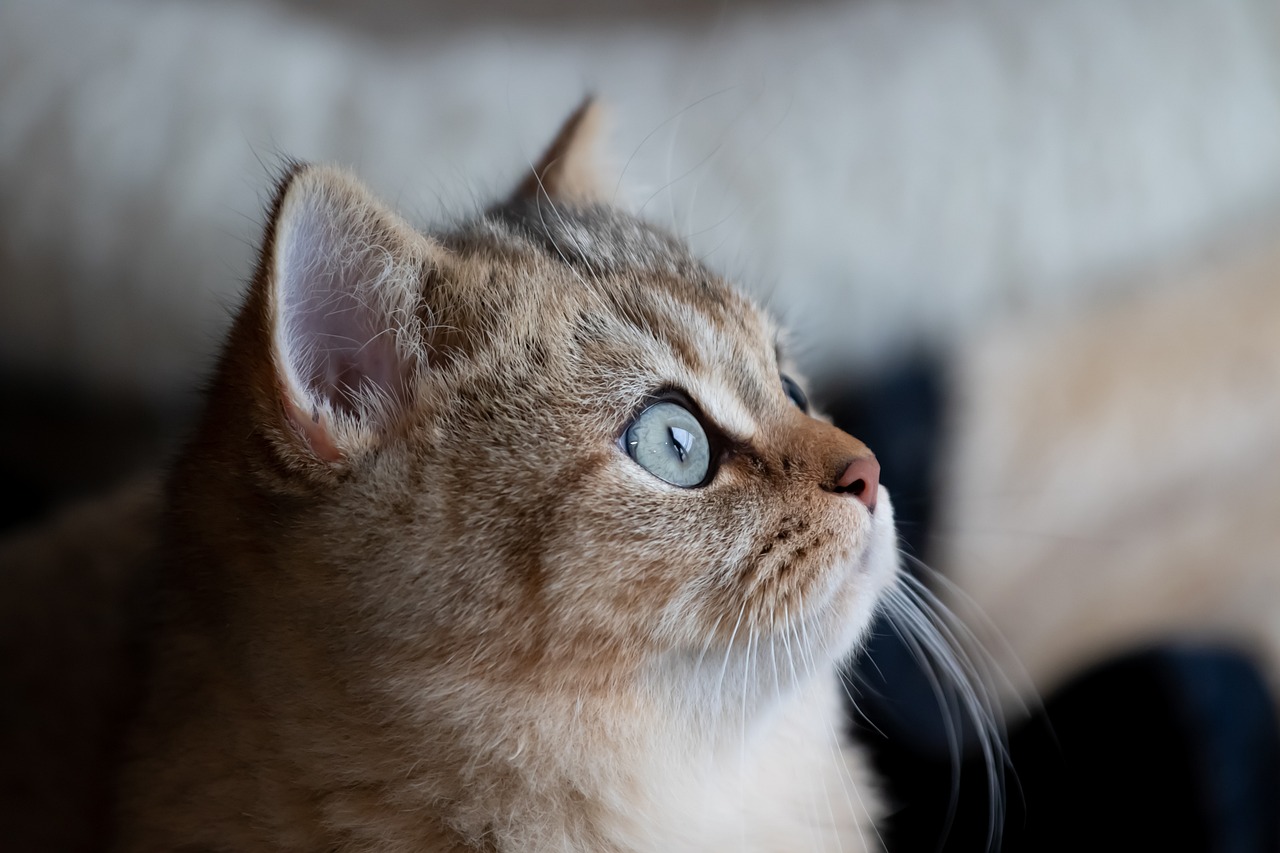
Hydration: A Key Component of Nutrition
When it comes to the health of working cats, hydration is often the unsung hero. Many cat owners focus on food, but water is just as critical for maintaining a cat's energy and overall performance. Imagine trying to run a marathon without drinking any water—it's a recipe for disaster! Just like humans, working cats need to stay hydrated to keep their bodies functioning optimally. Dehydration can lead to serious health issues, including kidney problems and decreased stamina, which can significantly impact their ability to perform their tasks effectively.
Water plays various roles in a cat's body. It helps with digestion, nutrient absorption, and temperature regulation. For working cats, who are often more active than their sedentary counterparts, the need for water increases. They can lose fluids quickly through panting, especially after a long day of chasing mice or patrolling their territory. A well-hydrated cat is not only healthier but also more efficient in its work. So, how can you ensure your working cat stays hydrated?
First, consider the type of food you provide. Wet cat food can be an excellent way to increase their water intake, as it contains a significant amount of moisture. On the other hand, dry kibble has much lower moisture content, so if your cat primarily eats dry food, it's crucial to encourage them to drink more water. You can do this by:
- Providing fresh water daily in a clean bowl.
- Using a cat water fountain, which many cats find more appealing.
- Adding water or broth to dry food to increase moisture content.
Additionally, always keep an eye on your cat's drinking habits. If you notice any changes, such as decreased water intake or signs of dehydration, it's essential to consult a veterinarian. Signs of dehydration in cats can include:
- Dry mouth and gums.
- Loss of skin elasticity—when you gently pull the skin, it should snap back quickly.
- Sunken eyes.
- Lethargy and decreased energy levels.
By ensuring your working cat has access to fresh water and monitoring their hydration status, you can help them maintain their health and efficiency. Remember, a hydrated cat is a happy and productive cat, ready to take on the world!
1. How much water should a working cat drink daily?
The general guideline is that cats should drink about 2.5 to 5 ounces of water per 5 pounds of body weight daily. However, this can vary based on their activity level and diet.
2. Can I use a water bowl instead of a fountain?
Yes, a water bowl is fine as long as you change the water daily and keep the bowl clean. However, many cats prefer running water, so a fountain can encourage them to drink more.
3. What are the signs of dehydration in cats?
Signs include dry mouth, lethargy, loss of skin elasticity, and sunken eyes. If you notice any of these signs, consult your veterinarian immediately.
4. Is wet food better for hydration than dry food?
Yes, wet food contains more moisture, which can help keep your cat hydrated. If your cat eats dry food, ensure they drink enough water to compensate.
Signs of Dehydration in Working Cats
Dehydration is a silent but serious issue that can sneak up on our hardworking feline friends. Just like humans, cats need a steady intake of water to keep their bodies functioning optimally. When it comes to working cats—those furry little dynamos who chase mice or help control pests—recognizing the signs of dehydration is crucial. After all, a dehydrated cat can quickly become a less effective worker, and we certainly don’t want that!
So, what should you look out for? One of the first signs of dehydration is a decreased appetite. If your cat suddenly shows less interest in their food, it could be a red flag. Additionally, you might notice that their gums appear dry or sticky, which is another indicator that they might not be getting enough water. A simple way to check is to gently press your finger on their gums; if the color doesn’t return quickly, it’s time to take action.
Another common sign is a decrease in energy levels. Working cats are usually full of life, so if your feline seems lethargic or less enthusiastic about their tasks, consider whether they might be dehydrated. You might also observe that their skin loses elasticity. To test this, gently pinch the skin on the back of their neck; if it doesn’t spring back quickly, it’s a sign they may need more fluids.
In more severe cases, dehydration can lead to serious health issues. If you notice any of the following symptoms, it’s important to consult a veterinarian immediately:
- Sunken eyes
- Rapid breathing
- Weakness or collapse
To prevent dehydration, ensure that your working cat has constant access to fresh, clean water. Consider adding wet food to their diet, as it contains more moisture compared to dry kibble. Remember, a well-hydrated cat is not only healthier but also more effective in their work. Keeping an eye on these signs can make all the difference in your cat's performance and overall well-being!
Q: How much water should my working cat drink daily?
A: Generally, a cat should drink about 2.5 to 5 ounces of water per 5 pounds of body weight daily. However, this can vary based on activity level and diet.
Q: Can I tell if my cat is dehydrated by their urine?
A: Yes! Dark yellow urine or a strong odor can indicate dehydration. Ideally, your cat's urine should be light yellow.
Q: Are there specific foods that help with hydration?
A: Yes, wet cat food is a great option as it contains more moisture. Additionally, offering ice cubes or ice chips can encourage some cats to drink more water.
Q: What should I do if I suspect my cat is dehydrated?
A: If you suspect dehydration, make sure your cat has access to water and monitor their condition closely. If symptoms persist, consult your veterinarian for advice.
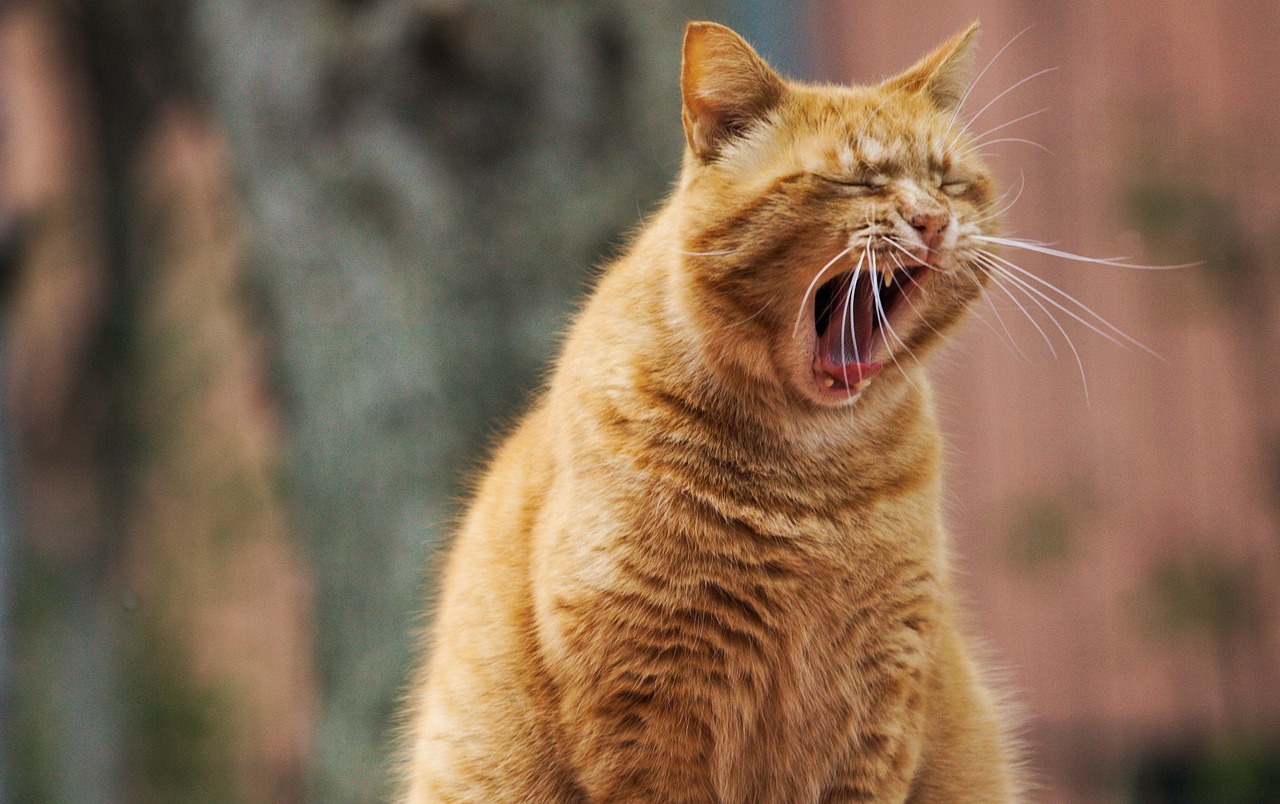
Choosing the Right Commercial Diet
When it comes to feeding our hardworking feline friends, selecting the right commercial diet can feel like navigating a maze. With so many options available, it’s essential to understand how to choose a food that meets the unique nutritional needs of working cats. Just like humans, cats require a balanced diet to thrive, especially when they are engaged in physical activities. The right diet can make a world of difference in their energy levels, performance, and overall health.
First off, it's crucial to read the labels on commercial cat foods. Look for products that list high-quality protein sources as the primary ingredient. Cats are obligate carnivores, which means they need animal-based proteins to stay healthy. A good rule of thumb is to choose foods where the first ingredient is a named meat, such as chicken, turkey, or fish. Avoid brands that list vague terms like "meat by-products" or "animal digest," as these can indicate lower-quality ingredients.
Moreover, pay attention to the guaranteed analysis section of the label. This will provide you with information on the minimum percentages of protein and fat, as well as the maximum percentages of fiber and moisture. For working cats, a diet with at least 30-40% protein and 15-25% fat is generally recommended to support their active lifestyles. Here’s a quick breakdown:
| Nutrient | Recommended Percentage |
|---|---|
| Protein | 30-40% |
| Fat | 15-25% |
| Fiber | Max 5% |
In addition to protein and fat, don’t forget about the importance of vitamins and minerals. Look for diets that include essential nutrients like taurine, omega fatty acids, and antioxidants, which can support heart health, skin and coat condition, and overall immunity. A well-rounded commercial diet will often contain a mix of these vital components, ensuring that your working cat gets everything they need to perform at their best.
Another factor to consider is the life stage of your cat. Kittens, adults, and senior cats all have different nutritional requirements. For instance, a growing kitten will require more protein and fat than an adult cat, while a senior cat may benefit from a diet lower in calories and higher in fiber. Always choose a diet that matches your cat's life stage to ensure they are getting the right balance of nutrients.
Lastly, don't hesitate to consult your veterinarian when making dietary choices for your working cat. They can provide personalized recommendations based on your cat's specific needs, activity level, and health status. Remember, just like a race car needs the right fuel to perform well, your working cat needs the right diet to excel in their daily tasks!
- What should be the main ingredient in my cat's food? Always look for a named meat as the first ingredient, such as chicken or fish.
- How much protein does my working cat need? Working cats typically require 30-40% protein in their diet to support their energy levels and muscle maintenance.
- Can I mix different brands of cat food? While it's possible, it's best to consult with a vet to ensure the combined diets meet all nutritional needs.
- Is homemade food better than commercial diets? Homemade diets can be beneficial, but they must be nutritionally balanced. Consult a vet for guidance.
Homemade Diets for Working Cats
When it comes to feeding our furry companions, particularly those with demanding jobs, the idea of a homemade diet can be both exciting and daunting. Many cat owners opt to prepare meals for their working cats to ensure they receive the freshest ingredients and tailored nutrition. However, crafting a balanced diet at home requires careful consideration and a bit of culinary creativity. The goal is to meet the unique nutritional needs of these industrious felines while providing them with delicious meals that keep their energy levels high.
One of the primary advantages of homemade diets is the ability to control the quality of ingredients. You can choose fresh, high-quality meats, vegetables, and supplements that align with your cat's specific needs. Unlike commercial cat food, which may contain fillers and artificial additives, a homemade diet can be customized to avoid any unwanted ingredients. However, this customization comes with a responsibility to ensure that all essential nutrients are included in their meals.
Before diving into the kitchen, it’s crucial to understand the fundamental components of a well-rounded diet for working cats. Here are some key elements to consider:
- Protein: As mentioned earlier, protein is vital for muscle maintenance and energy. Incorporating lean meats such as chicken, turkey, or fish can provide the necessary amino acids.
- Fats: Healthy fats, like those found in fish oil or chicken fat, are essential for energy and overall health.
- Vitamins and Minerals: Fresh fruits and vegetables can offer necessary vitamins, but be cautious as not all are safe for cats. Consult a vet for recommendations.
- Water: Hydration is key, so always ensure your cat has access to fresh water, especially if you’re preparing dry food.
To help you get started, here’s a simple recipe for a homemade cat meal that’s packed with nutrients:
| Ingredient | Amount | Benefits |
|---|---|---|
| Cooked Chicken Breast | 1 cup, shredded | High in protein |
| Cooked Carrots | ½ cup, chopped | Rich in vitamins |
| Cooked Rice | ½ cup | Source of carbohydrates |
| Fish Oil | 1 teaspoon | Healthy fats for energy |
Mix these ingredients together, and you’ve got a wholesome meal that’s sure to fuel your working cat’s busy day! However, keep in mind that transitioning to a homemade diet should be done gradually to avoid digestive upset. Always consult with a veterinarian before making significant changes to your cat's diet to ensure it meets all their nutritional needs.
In conclusion, while homemade diets can be a fantastic option for working cats, they require careful planning and execution. With the right ingredients and knowledge, you can create meals that not only satisfy your cat’s taste buds but also enhance their performance on the job. So, roll up your sleeves and get cooking, because a well-fed working cat is a happy and productive one!
Q: Can I feed my working cat a vegetarian diet?
A: Cats are obligate carnivores, meaning they require meat to thrive. A vegetarian diet is not suitable for them, especially for working cats who need high protein for energy and muscle maintenance.
Q: How can I ensure my homemade cat food is balanced?
A: Consult with a veterinarian or a pet nutritionist to create a balanced meal plan. They can help you determine the right proportions of protein, fats, and other nutrients needed for your cat's specific activity level.
Q: Is it safe to feed my cat raw meat?
A: While some owners choose to feed raw diets, it’s essential to be cautious. Raw meat can carry bacteria that may harm your cat. If you decide to go this route, ensure you follow safe food handling practices and consult your vet.
Frequently Asked Questions
- What are the specific nutritional needs of working cats?
Working cats require a balanced diet that includes higher levels of protein and fats compared to non-working cats. These nutrients are essential for maintaining energy levels, supporting muscle health, and ensuring overall well-being. Additionally, they need a variety of vitamins and minerals to support their active lifestyles.
- How much protein should a working cat consume?
The protein requirements for working cats can vary based on their activity level. Generally, active cats may need around 30-40% of their diet to come from protein. It's crucial to adjust their intake according to their workload and physical condition to ensure they maintain muscle mass and energy.
- What are the best sources of protein for working cats?
High-quality animal-based proteins are the best sources for working cats. Options like chicken, turkey, fish, and beef provide essential amino acids necessary for muscle maintenance and energy. Always look for cat foods that list these proteins as the primary ingredients.
- Why are fats important in a working cat's diet?
Fats serve as a concentrated source of energy, which is particularly important for working cats that expend a lot of energy throughout the day. Healthy fats, such as omega-3 and omega-6 fatty acids, also support skin and coat health and can help reduce inflammation.
- How can I ensure my working cat stays hydrated?
Hydration is key for a working cat's performance. Make sure fresh water is always available, and consider incorporating wet food into their diet, which can help increase their water intake. Watch for signs of dehydration, such as lethargy, dry gums, or decreased skin elasticity.
- What should I look for when choosing a commercial diet for my working cat?
When selecting a commercial diet, read the labels carefully. Look for high-quality ingredients, particularly animal proteins as the first ingredient, and ensure it meets the nutritional levels established by the Association of American Feed Control Officials (AAFCO). Avoid foods with excessive fillers or artificial additives.
- Are homemade diets suitable for working cats?
Homemade diets can be suitable for working cats if they are well-balanced and meet all nutritional requirements. However, it’s essential to consult with a veterinarian or a pet nutritionist to ensure that the diet includes all necessary nutrients and is safe for your cat's health.

